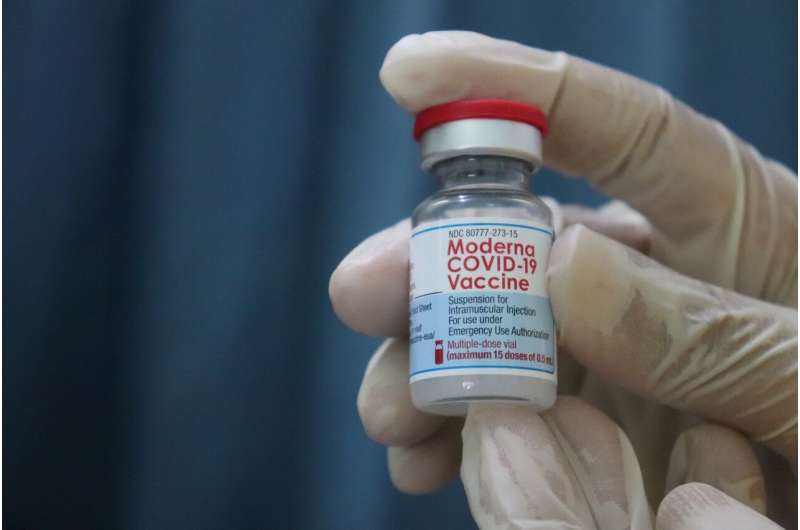
When the delta variant of the coronavirus hit the Sierra Conservation Center—a low- to medium-security prison for men in California—residents who had received the Moderna vaccine were well protected against symptomatic infection, according to Stanford-led research.
The study, published in the New England Journal of Medicine, also found that in the men who had previously been infected with COVID-19, two doses of the Moderna vaccine resulted in additional, substantial protection against the delta variant.
The study is one of the first to analyze the effectiveness of vaccination during an outbreak of the delta variant. The researchers found that although the estimated vaccine effectiveness against infection (56.6%) was substantially lower than that found in studies conducted before the emergence of the delta variant, protection against symptomatic infection remained high (84.2%). And in men who previously had COVID-19, the vaccine reduced the risk of subsequent infection by 80.5%.
The study also noted that during the height of the pandemic, incarcerated people were infected by the coronavirus at a rate five times higher than the nation’s general population.
“Even though we detected high vaccine effectiveness in our study, the outbreak underscores that incarcerated people continue to face risks from the COVID-19 pandemic,” said Elizabeth Chin, the lead author of the study and a Ph.D. student in biomedical data science. “Relying on vaccination alone is insufficient in preventing outbreaks in this vulnerable population.”
Chin emphasized that prison officials must prioritize not only efforts to increase vaccine coverage among their residents and staff, but also to step up nonpharmaceutical strategies such as masking, testing and reducing the population size and density of their correctional facilities, given highly transmissible variants.
Chin is a member of a team of researchers who have been using mathematical modeling and data analyses throughout the pandemic as part of the Prevention Policy Modeling Lab and SC-COSMO consortium. They have been modeling and analyzing COVID-19 data to inform prevention and mitigation strategies around the country, including California and its prisons. For this study, the researchers collaborated with colleagues at the California Department of Corrections and Rehabilitation and the California Correctional Health Care Services.
Delta hits the prison
There were no COVID-19 infections detected among the residents of Sierra Conservation Center in Jamestown, in the Sierra Nevada foothills, between April 23 and July 15, 2021, but a severe outbreak began on July 16. Testing confirmed the infections were from the delta variant.
From July 16 until Aug. 15, the researchers tracked infections among one-quarter of the incarcerated men—827 of 3,221 residents. Of those residents, 468 were fully vaccinated with Moderna, and 359 were unvaccinated. (Vaccination for both staff and residents is voluntary in Californian correctional facilities; state mandates for staff are currently being challenged in court.)
They found 122 confirmed infections: 75 in unvaccinated residents and 47 in vaccinated residents. Of those infections, they found 27 symptomatic cases: 23 in the unvaccinated and four in the vaccinated. One unvaccinated resident required hospitalization.
Only six of the 177 men who previously had been infected and were vaccinated became infected during the study period.
Source: Read Full Article